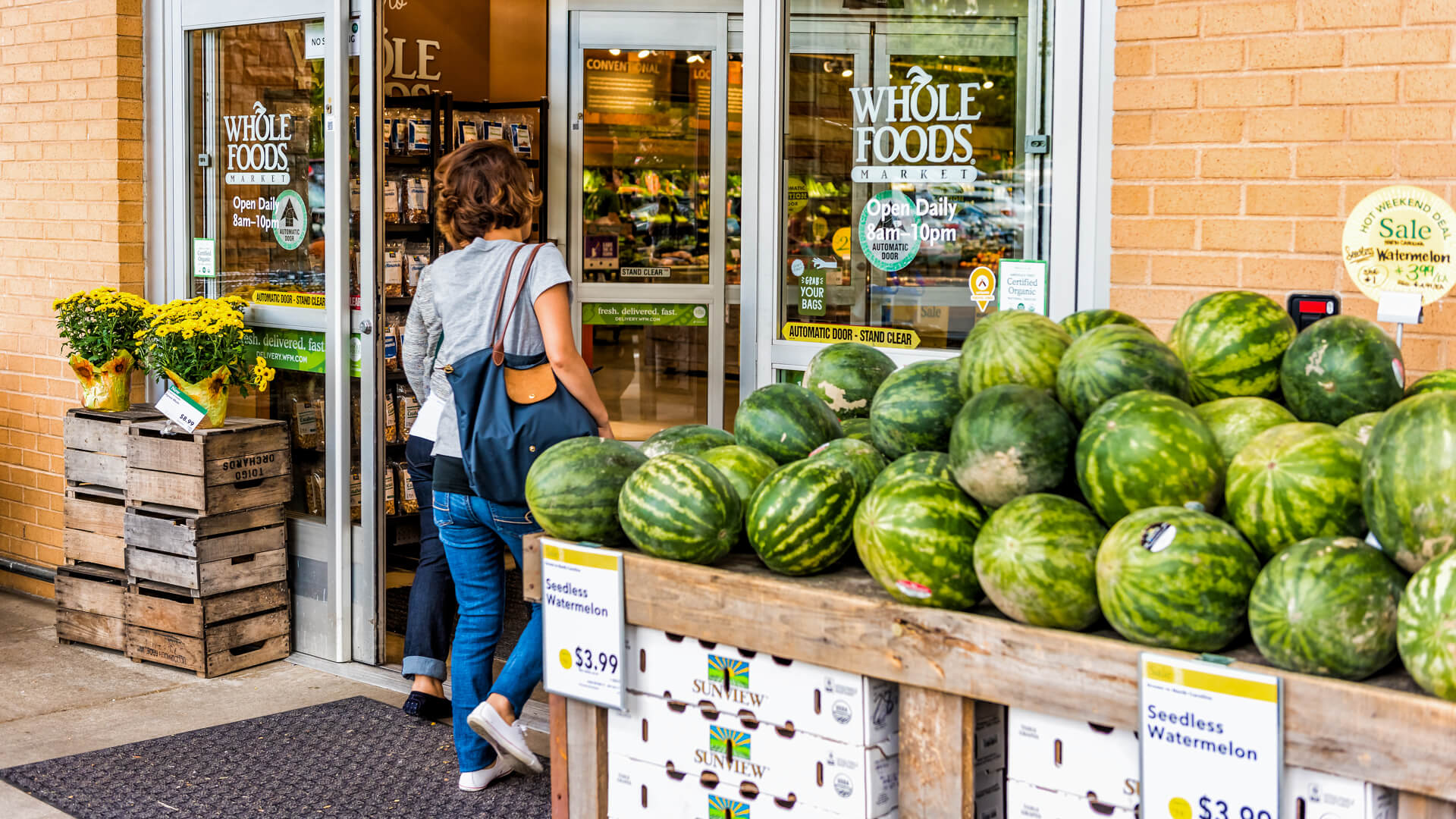Shopping
I Stopped Shopping at Whole Foods: Here’s Why

Andriy Blokhin / Shutterstock.com
Commitment to Our Readers
GOBankingRates’ editorial team is committed to bringing you unbiased reviews and information. We use data-driven methodologies to evaluate financial products and services – our reviews and ratings are not influenced by advertisers. You can read more about our editorial guidelines and our products and services review methodology.

20 Years
Helping You Live Richer


Trusted by
Millions of Readers
Whole Foods is known as one of the more expensive grocery stores, with many people using the tongue-in-cheek name “Whole Paycheck” to refer to this retailer. Amazon’s scale has helped the grocery store be more budget-friendly in certain areas. But if you’re on a budget, Whole Foods still tends to have higher costs than some more price-competitive options like Trader Joe’s, as a GOBankingRates analysis found.
Meanwhile, some competitors have made inroads in terms of offering more organic and specialty items that Whole Foods is famous for. As such, some consumers have started skipping Whole Foods altogether.
Product Pricing and Availability
Take Lauren Keys, creator at Trip Of A Lifestyle. While her decision to stop shopping at Whole Foods a few years ago was partly caused by distance — she moved within Florida to a coastal town where the closest Whole Foods is about an hour away — having one nearby wouldn’t make much of a difference. That’s because to Keys, what made Whole Foods unique years ago no longer applies, and it’s easier to save money elsewhere.
“The main reason I don’t really shop at Whole Foods is the pricing. It’s just gotten so expensive, and a lot of the packaged brands there have made their way into the regular grocery stores I shop at,” Keys said.
Vegan meat substitutes, for example, are getting easier to find at non-specialty grocers in Keys’ area, and she can save money by buying them elsewhere.
“As more people become more concerned with healthier choices, from what they eat to what they clean their house with, I’ve seen a lot of ‘better-for-you’ brands show up in all kinds of stores. Walmart and Target carry all kinds of vegan items at really affordable prices, so I don’t have to go to specialty grocery stores anymore. It’s saved me a ton of money,” she explained.
Cost Comparisons
Keys does a lot of her grocery shopping at Walmart, where she’s able to find some of her favorite specialty items for less than what she would pay at Whole Foods.
“If you just look at something like a pack of Beyond Meat breakfast sausage patties, you’d pay $5.69 for them at Whole Foods while Walmart carries the same item for $4.42,” she said.
“Even with personal care, like Every Man Jack deodorant, you’d typically pay $7.99 for a 3-ounce stick at Whole Foods versus $6.47 at Walmart. Organic carrots are $1.49 per pound at Whole Foods and only $1.07 per pound at Walmart. The savings really add up,” she added.
Plus, in the past, she would only go to Whole Foods for niche items rather than shopping for her full list. So she can save time by grocery shopping at stores like Walmart and Target.
“All of these stores are closer to me than Whole Foods and carry a variety of goods, so I can knock out all my grocery shopping at just one store,” she said.
“It’s not necessary to go to Whole Foods for specialty items — and pay more — now that demand has made it easier to access those same items almost everywhere,” she added.
While Keys has found she doesn’t need to go to Whole Foods anymore, it’s essential to consider that everyone’s grocery preferences differ. For example, you might prefer the produce at Whole Foods even if it costs more. But if you’re looking to stay within a tighter budget, it could make sense to look elsewhere.
More From GOBankingRates








